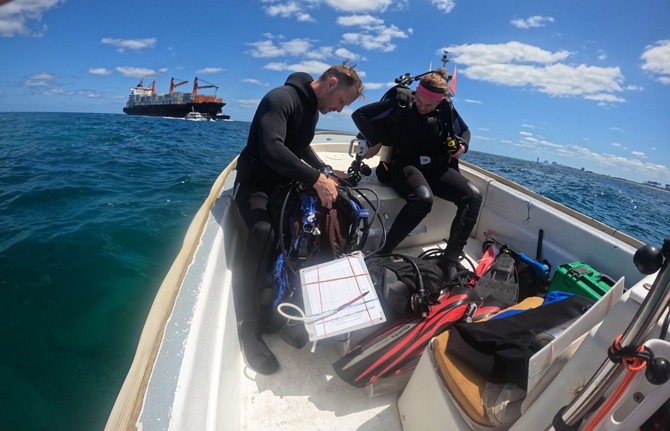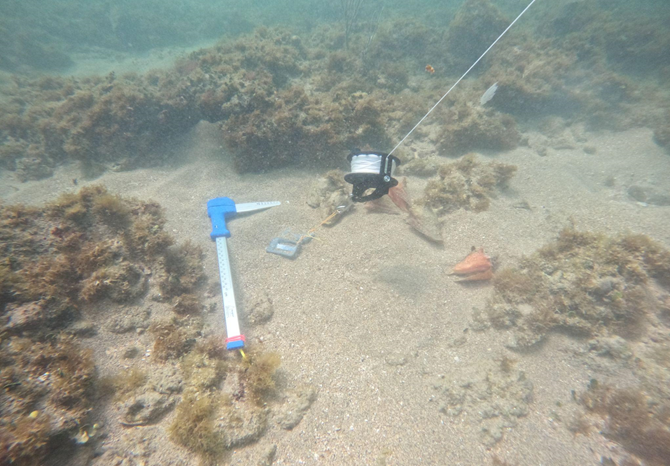
This spring, scientists surveyed one of only two known reproductively active aggregations of adult queen conch, a species listed earlier this year as threatened under the Endangered Species Act. The aggregation is located in Port Everglades, Florida — a Fort Lauderdale port that is planning a massive deepening and widening of its harbor and entrance channel as soon as 2028.
NCCOS researchers joined the multi-agency team of divers who conducted belt transects and radial surveys to obtain information on the distribution and abundance of the queen conch population in and around Port Everglades. Data collected will inform the National Marine Fisheries Service’s biological assessment of queen conch and support development of long-term monitoring and adaptive management plans for the queen conch population in the vicinity of the port.
Queen conch are found throughout the Caribbean Sea, the Florida Keys, the Gulf of Mexico, and around Bermuda. The species is a slow moving, benthic herbivore whose distribution is believed to be limited by the availability of algae and native seagrass. Harvesting queen conch from Florida’s coastal waters is prohibited. However, the species continues to be harvested intensively throughout the Caribbean for its meat, shell, and pearls.

